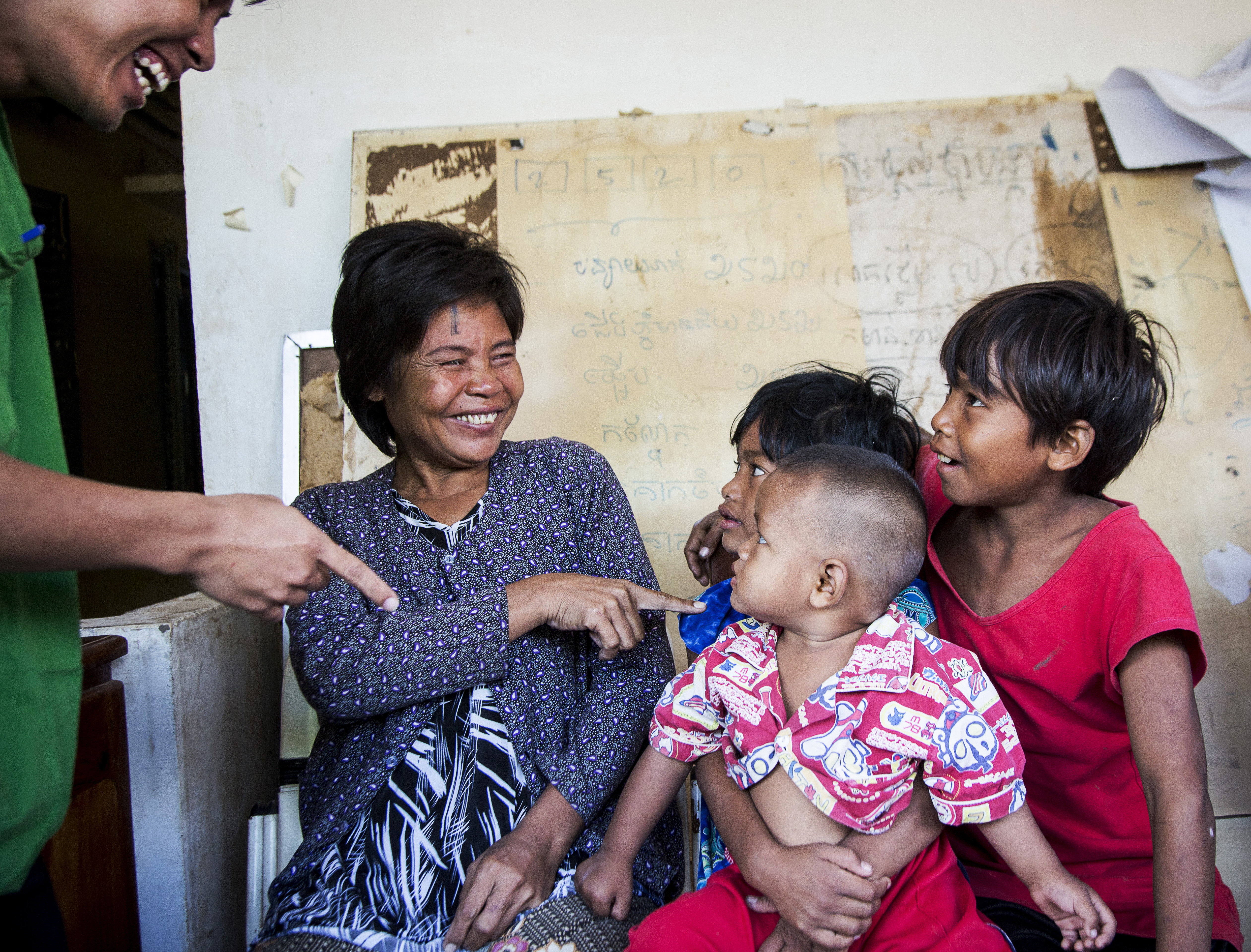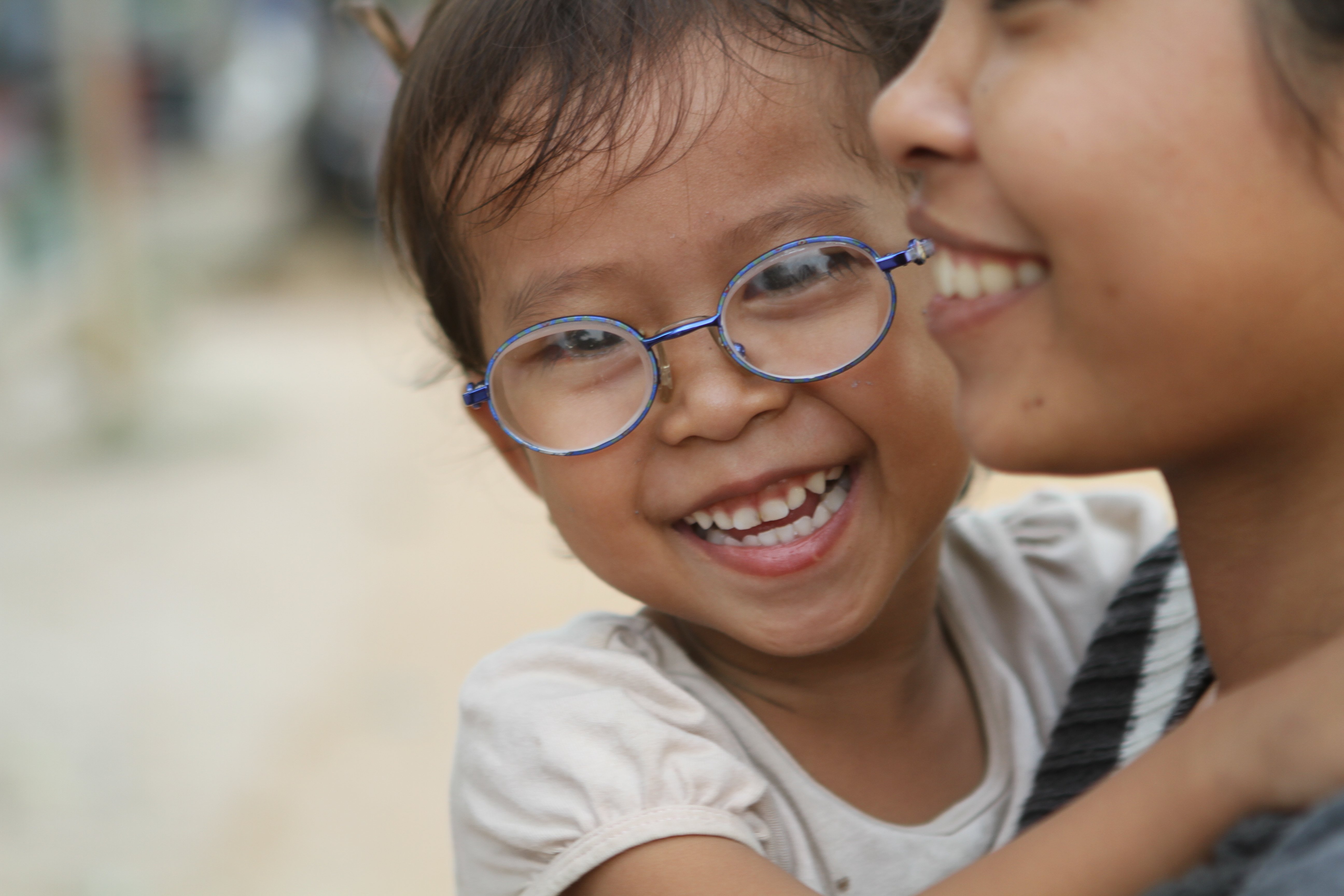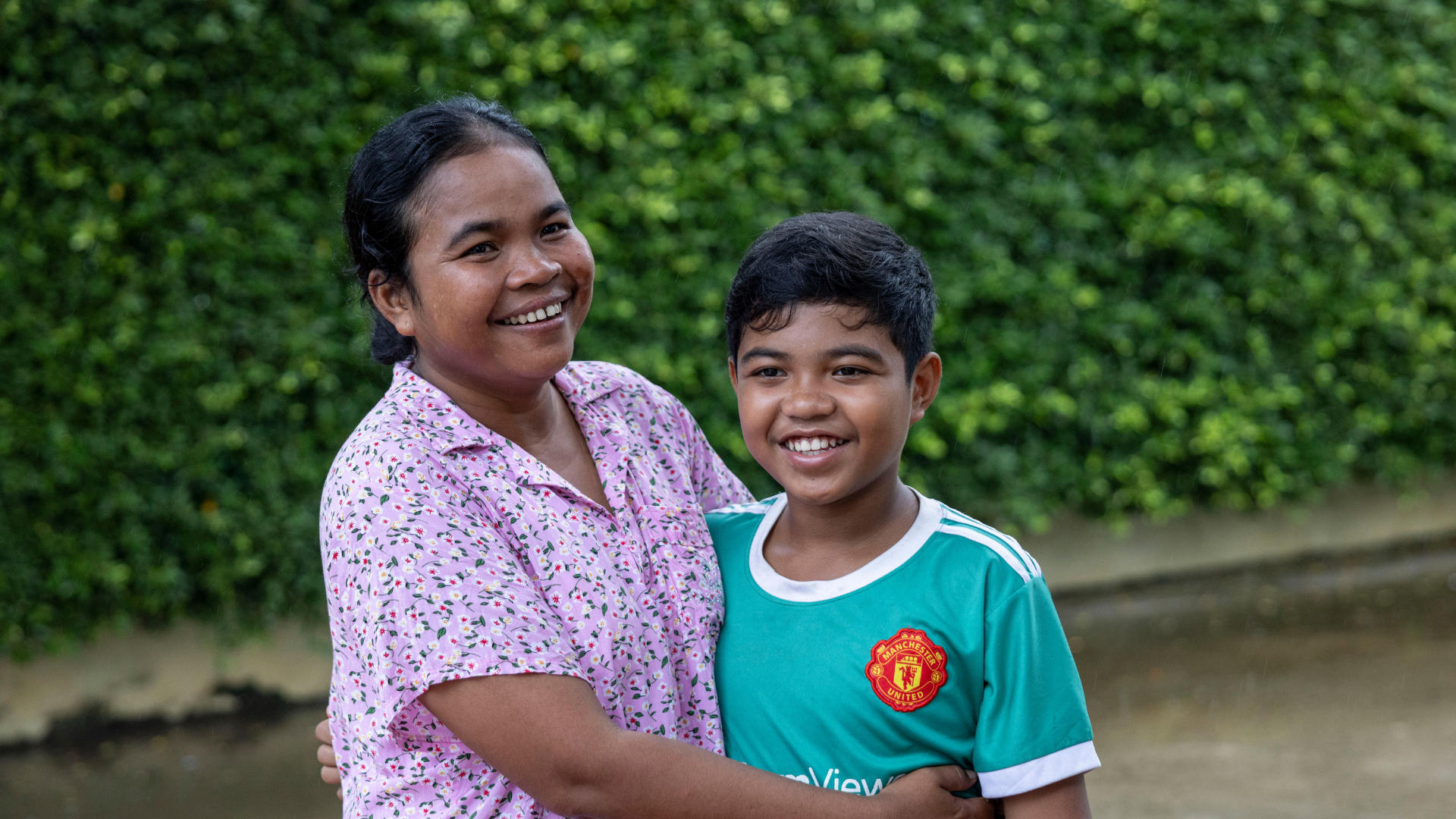Our work in Cambodia
Cataract was identified as the leading cause of avoidable blindness in Cambodia and the cataract backlog has been increasing over the past 10 years. The RAAB also revealed that uncorrected refractive error is the second major cause of moderate visual impairment (17.5%) and the main cause of early visual impairment (61.2%).
Eye health services remain unaffordable and inaccessible to those most in need. In 2019, a review of Cambodia’s National Strategic Plan on Blindness Prevention and Control showed that only 33% of the 125 national, provincial and district-based referral hospitals were able to deliver eye health services.
The number of eye health workforce in Cambodia also lags considerably behind the WHO recommended ratio.
In addition, the report also noted the ongoing challenge of ensuring equitable distribution of eye health human resources between provinces and cities. Encouraging ophthalmologists to work in rural areas where the need is greatest is another challenge.
Explore the inspiring work happening at the Khmer Soviet Friendship Hospital in Cambodia, where we’re partnering to bring eye care to those in need.
Our achievements
The Foundation works with government partners on efforts to eliminate avoidable blindness in Cambodia.
These partners include the Ministry of Health, the Ministry of Women’s Affairs, the Ministry of Education, the National Program for Eye Health, the University of Health Sciences and other NGOs to promote eye health services in Cambodia.
The Cambodia program also receives support from the Australian Government through the Australian NGO Cooperation Program (ANCP).
The Foundation continues to focus on health system strengthening in leadership and governance, health financing, and workforce development.

Our results
Through The Foundation supported training programs:
- 17 ophthalmology residents and 41 ophthalmic nurse students graduated.
Advocacy efforts contributed to considerable improvement in eye health workforce distribution.
The results
- An additional 13 graduate ophthalmologists have been employed by various government and NGO hospitals in 2019, with six employed by provincial hospitals.
Gender equity and disability inclusion
- Women accounted for more than half (6,987 of 10,560) of people ( who participated in various gender and eye health awareness raising activities. As well, 34 people with a disability participated.
- Women comprised more than half (335 of 614) of people who received eye screening services during World Sight Day, with 35 referred for cataract surgery. As well, 31 people with a disability were screened with two accessing cataract surgery.

In 2024, The Foundation and its partners made great progress in key strategic areas in East Asia:
3,165,363
People screened.
137,566
Eye operations and treatments performed including cataract operations, surgeries to treat trachoma, diabetic retinopathy treatments and other sight saving or improving interventions.
86,868
Pairs of glasses distributed.
19,813
People trained including community health workers, surgeons, clinic support staff and teachers.
1,713,566
School children and community members educated in eye health and sanitation.
315
Facilities built, equipped or renovated.
The countries in Asia that The Foundation works in are Lao PDR, China, Vietnam, Cambodia, Philippines and Indonesia.
